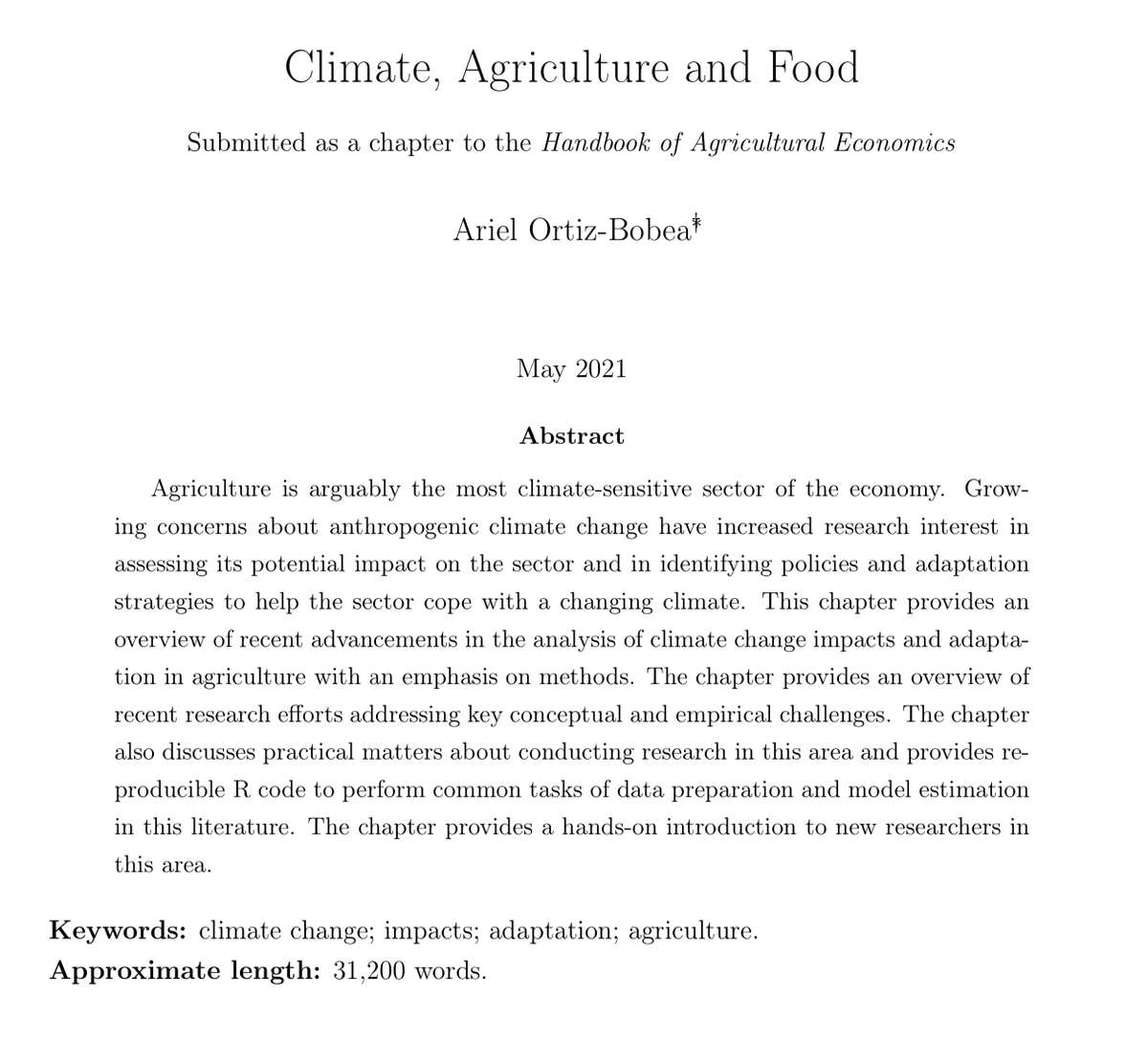Just uploaded a pre-print of my chapter "Climate, Agriculture and Food" for the Handbook of Agricultural Econ: arxiv.org/abs/2105.12044
Excited to include a hands-on section (w/ R code) to introduce the reader to many common empirical tasks from data processing to estimation.
Excited to include a hands-on section (w/ R code) to introduce the reader to many common empirical tasks from data processing to estimation.

Code and data to reproduce all the figures and tasks discussed in the chapter are hosted here: archive.ciser.cornell.edu/reproduction-p…
Thanks to @CISER_CU's amazing staff for helping me host these data permanently and open to all.
Thanks to @CISER_CU's amazing staff for helping me host these data permanently and open to all.
Some very standard things in the chapter: covering terminology, overview of methods, recent advances, etc.
The unique and exciting part for me is the empirical section.
The unique and exciting part for me is the empirical section.
Tasks that I cover: weather station interpolation (of various kinds, w/ warnings), efficient gridded weather data aggregation, efficient computation of temperature exposure bins... 

Estimation of step functions, splines and Chebyshev polynomials based on temperature exposures (a la Schlenker and Roberts) 

I also illustrate how to estimate a "2D" tensor spline to flexibly capture nonlinear weather effects that vary smoothly within the growing season.
This is based on my 2019 ERL paper: iopscience.iop.org/article/10.108…
This is based on my 2019 ERL paper: iopscience.iop.org/article/10.108…

I also cover the estimation of various types of standard errors and estimators that account for spatial dependence in various ways, including Conley errors and a Spatial Error Model with panel data. 

I also talk about common robustness checks in the literature on climate impacts and provide an example on how to succinctly show those checks in a specification chart: 

When I was a grad student no-one in my dept worked on climate stuff. I felt I had to learn so much on my own to do research in this area.
My hope is that this chapter will lower barriers to entry to new researchers wanting to study climate impacts on ag (and more). Cheers.
My hope is that this chapter will lower barriers to entry to new researchers wanting to study climate impacts on ag (and more). Cheers.
Needless to say, this is a pre-print so I welcome specific comments that I hope I can squeeze in a revision before the final version is sent to the publisher (unfortunately the published chapter won't be open access).
Note that I've been working perhaps too intensively on this over the past few weeks/months, so I'm sure I've missed covering some things. So let me know if you see something within the scope of the chapter that I can easily address. DMs are open!
• • •
Missing some Tweet in this thread? You can try to
force a refresh




